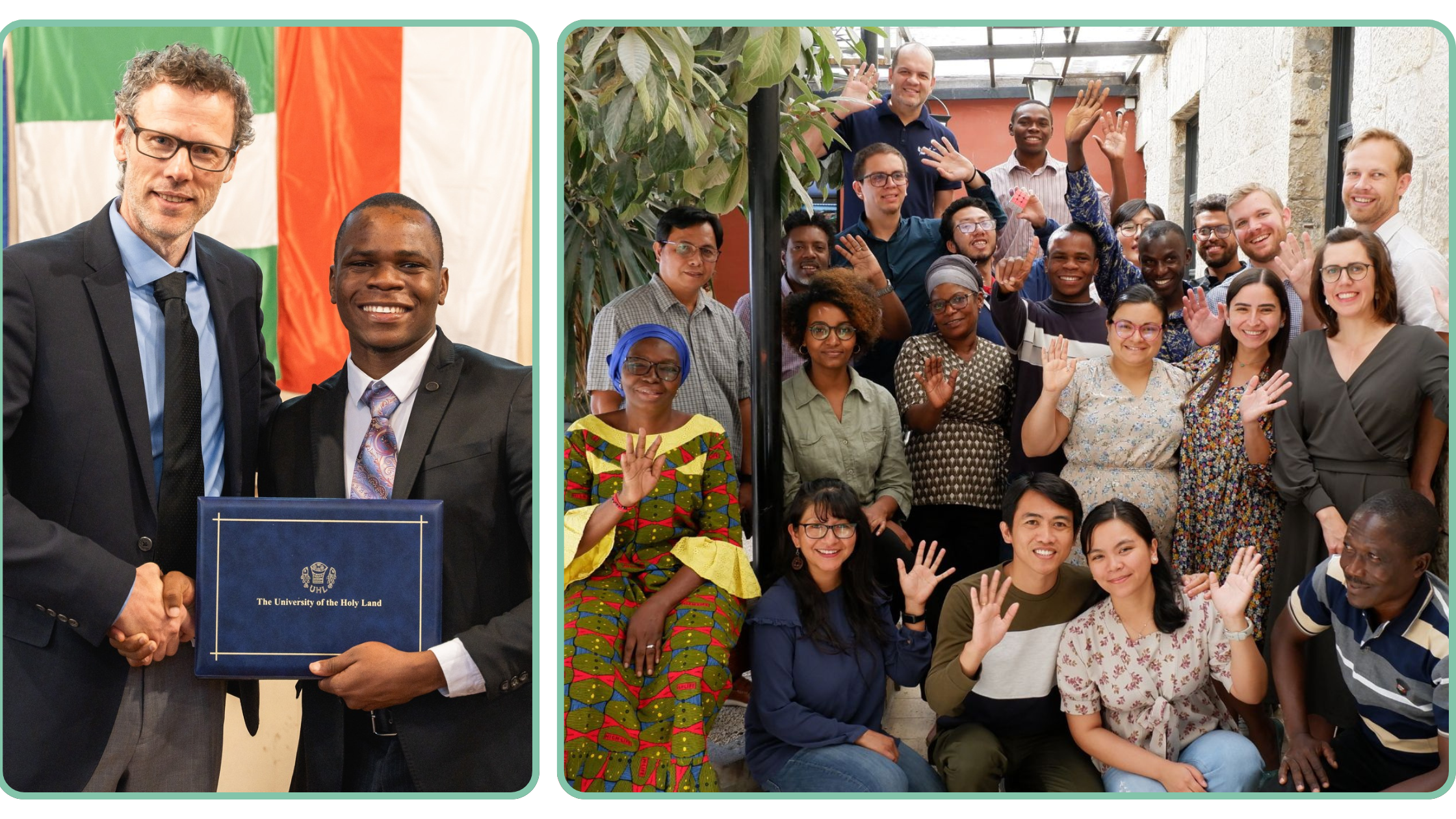Mercy Triumphs Over Judgment
Dear Friend,
I’ve just returned to Jerusalem from Thailand, where I was meeting with Bible translation partners to plan how to complete the task of providing the needed thousands of whole Bible translations for Southeast Asia. Sharon joined me here in Jerusalem, and we have the joy of seeing yet more Biblical Hebrew instructors and translators ready to begin programs in Bibleless regions.

(On left) David with leaders of Indonesian translation & leadership development agency at a gathering of all the Wycliffe Global Alliance organizations from the Asia-Pacific region
(On right) David and Israeli colleague with leaders of two Indonesian translation agencies
Thank you for your continued prayers and generosity. The gifts you’ve given are multiplying opportunities for many new Bible translations. Like loaves and fishes, as we offer what we can, whether small or large, God is using it to make the way for His whole Word to reach people in their own languages.
This next season will be intense as Whole Word’s Hebrew Extension Learning Programs (HELP) multiply rapidly. Programs in Mozambique, Indonesia, and Benin are well underway, training translators for Old Testament translation. In November, new programs will launch in Ethiopia and South Africa. The new year will bring two additional locations—the Philippines and another in Indonesia—each one building local capacity for translation into Bibleless languages.
Eyerusalem, one of our best student instructors, returns to Ethiopia this month to serve as a program leader and assistant teacher in our foundational “Jonah” course in Biblical Hebrew hosted by our partner, Harvest Mission Ethiopia. Translators from South Sudan and other neighboring countries will join the Ethiopians in learning Biblical Hebrew for translation. Ethiopia alone has over 80 languages of which only 16 have a full Bible.
Peleg is preparing to lead the ongoing program in Mozambique and will serve as a teacher’s assistant for the South Africa ”Jonah” course that also begins this month with local partner, Wycliffe SA. That cohort will gather translators from South Africa, Kenya, Botswana, Zambia, Malawi, Namibia, Lesotho and Eswatini, representing 23 distinct language translation projects.
Through all of these programs, translators, teachers and pastors are equipped to multiply biblical language training and translation so their churches can access the whole Word of God in their own languages and develop biblical resources for discipleship.
As our brother Rodrique Jacob, who is studying in Biblical Hebrew through HELP in Benin just shared with us:
“My community needs the entire Bible in its own language to clearly understand the Word of God—His thoughts, His desires, and His expectations. Learning Hebrew helps me grasp the deeper meaning of Scripture and lead our translation team to render God’s Word faithfully from the original text. When we share these passages [from Genesis] people tell us how clear and easy to understand they are, even without additional commentary.”
Your prayers and support fuel the work of translators like Rodrique, who serve faithfully to bring the whole Word of God to people’s hearts. God is blessing your contribution—taking our loaves and fishes and feeding many thousands through your gifts.
I look forward to sharing testimonies and stories from other parts of the world soon.
With you in His service,
David
P.S. I dedicate this in memory of our beloved student and translator, Cosme “Aran,” who recently passed away in a tragic accident in Mozambique. Cosme spent the past year in Jerusalem with us studying Biblical Hebrew to help bring God’s Word to Bibleless languages in Mozambique. He had just returned home to join Wycliffe in Mozambique and local translators in advancing full Bible translation in Lusophone Africa. We will remember Cosme as a devoted follower of Jesus and a joyful friend whose life and work will leave a lasting legacy in Bible translation. Please pray with us for his family and colleagues as they mourn his loss. May his memory be a blessing.

Cosme with Dr. Niek Arentsen at the School of Biblical Hebrew graduation in Jerusalem this year,
along with his fellow graduating class of translators
One translator changes lives. One translation changes generations.
